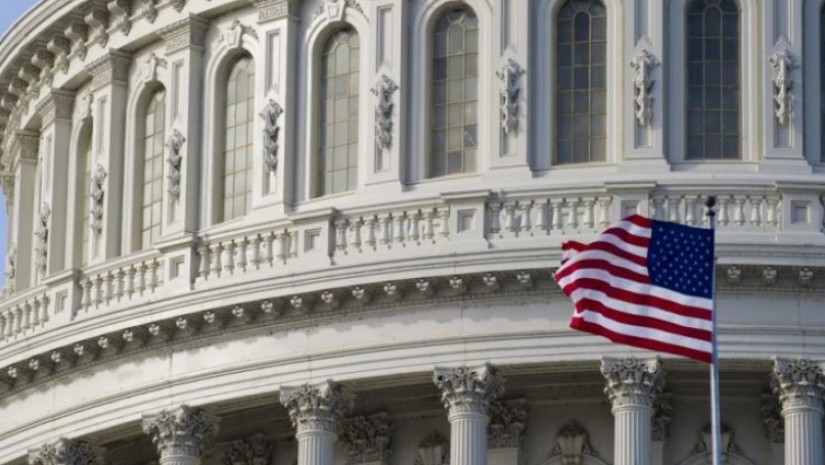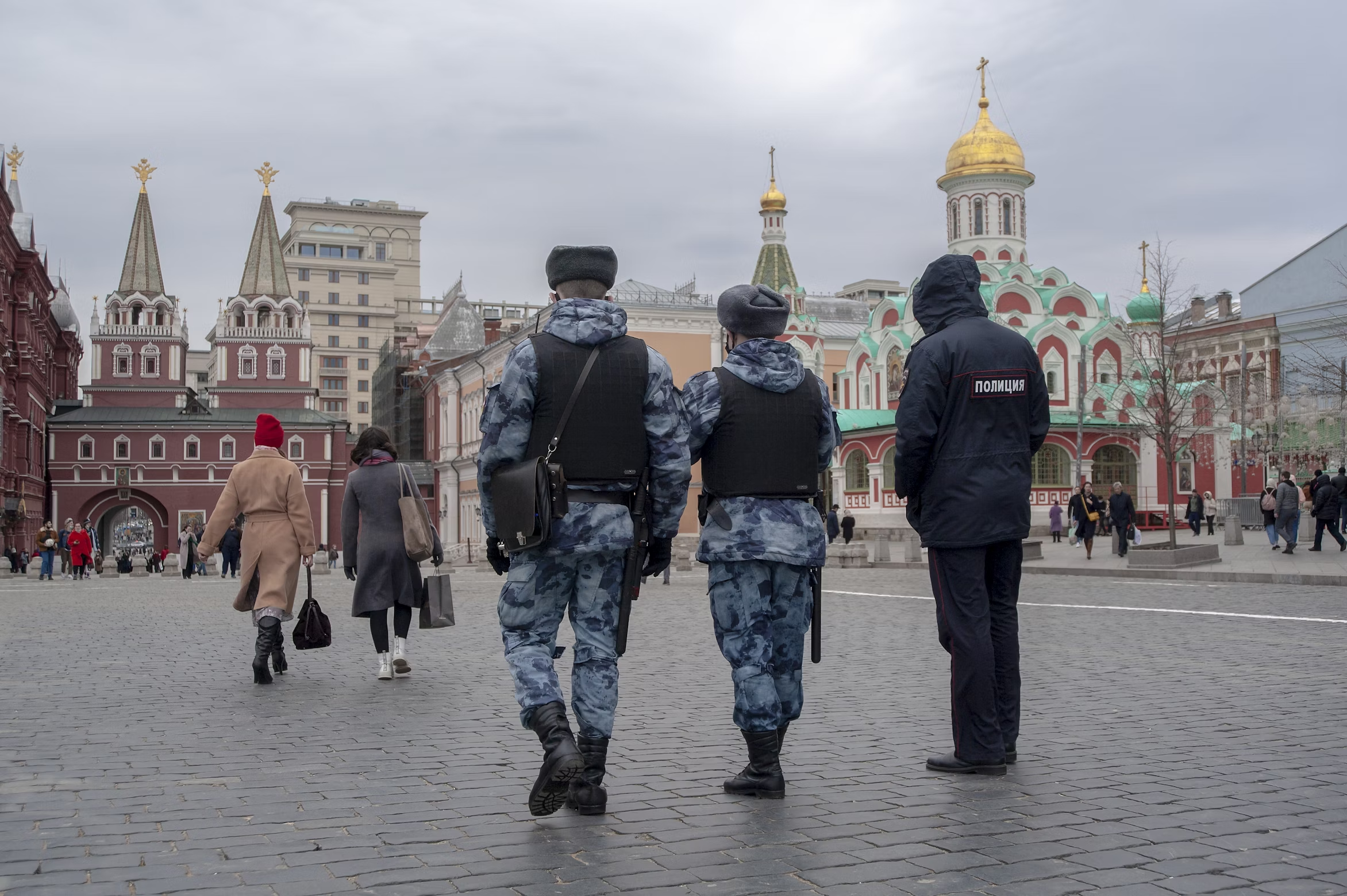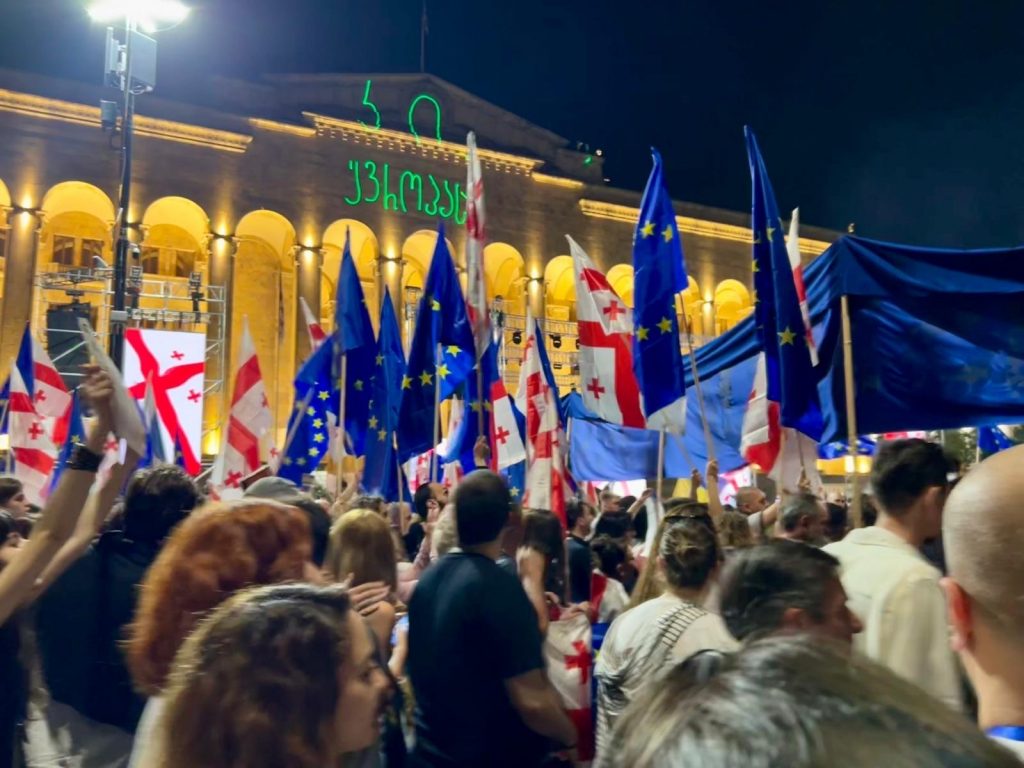By Shannon Simrell, Senior Policy Advisor
Between October 2-13, 11 Helsinki Commission staff joined approximately 1,400 representatives of OSCE participating States (pS) and civil society representatives in Warsaw, Poland in an annual review of the human rights records of OSCE States. U.S. leadership highlighted demands for accountability from Russia and Belarus for their human rights violations. Due to Russian blocking of the formal OSCE Human Dimension Implementation Meeting (HDIM), the meeting was held under the auspices of the Chairpersonship of North Macedonia as the Warsaw Human Dimension Conference (WHDC).
A Full Review of Commitments—Over Russia’s Objection
Organized by OSCE’s 2023 Chair-in-Office (CiO) North Macedonia with the support of OSCE’s Office for Democratic Institutions and Human Rights (ODIHR), the event consisted of ten working sessions during which States and civil society assessed States’ records on fulfilling the range of their democratic and human rights commitments, including organizing free and fair elections and protecting fundamental freedoms such as those related to media, assembly, and religion or belief. The event’s 79 side events allowed participants to conduct more in-depth discussions and table best practices on a wide variety of issues, including ensuring accountability for Russian war crimes and atrocities in Ukraine, countering rising antisemitism, eradicating torture, freeing political prisoners, protecting journalists, and ending trafficking in human beings.
For the second year in a row, the WHDC was organized in lieu of the statutorily mandated Human Dimension Implementation Meeting (HDIM) due to Russia’s refusal to grant consensus on decisions related to its organization. However, just as in 2022, OSCE States and civil society conducted a comprehensive review of OSCE’s “human dimension” commitments, effectively skirting Russia’s obstructionism. While Russia and Belarus subsequently boycotted the meeting, they failed to escape criticism. Hundreds of journalists, human rights defenders, and government officials were united not only in condemning Russia’s flagrant violations of international law but also in offering proposals to promote its accountability.
The WHDC sustained HDIM’s place as the world’s largest regional human rights and democratic governance forum and its unique role as a platform for dialogue among governments, parliaments, and civil society participating on equal footing.
“Together, we have explored practical ways we can work together and with the OSCE’s experts, field missions, and independent institutions to advance human rights and democracy, because we know this makes societies resilient, governments responsive, and relationships richer among states.”
Amb. Michael Kozak, 2023 Head of United States Delegation to WHDC
U.S. Delegation: Human Rights and Civil Society Central to European Stability
The United States Delegation was led by Ambassador Michael Kozak with the participation of United States Permanent Representative to the OSCE, Ambassador Michael R. Carpenter, and high level experts from: the U.S. Helsinki Commission; the U.S. Mission to OSCE; the Office of International Religious Freedom; the Office of the Special Envoy to Monitor and Combat Antisemitism; the Belarus Affairs Unit; the Special Representative for Racial Equity and Justice; the Bureaus of European and Eurasian Affairs, Human Rights and Labor, and Civilian Security, Democracy, and Human Rights; and various U.S. embassies, including those based in Tajikistan and Turkmenistan.
As part of the US delegation, Helsinki Commission staff met daily with human rights defenders and participated in plenaries and side events. Formal U.S. statements conveyed top U.S. policy priorities, including solidarity with Ukraine, an immediate end to Russia’s war of aggression against Ukraine, and accountability for Russian war crimes and atrocities. The United States also promoted direct engagement with civil society through daily bilateral meetings and a working reception.
The U.S. delegation also organized or co-sponsored side events that advanced issues of key importance. For example, a side event on Russia’s forced deportation of Ukrainian children featured the findings of a 2023 Moscow Mechanism report and expert recommendations on reunification and repatriation. In another, the United States launched an informal Group of Friends of Democratic Belarus together with nine States to support Belarus’ democratic opposition and develop strategies to hold the Lukashenko regime accountable for its violent crackdown on civil society and political repression. A third event drew participants’ attention to work of Roma activists and encouraged States to follow the United States’ lead by establishing Roma Issues Working Groups, while a fourth addressed violence against women in Ukraine.
Civil Society Raises Alarm Over Democratic Backsliding
Interventions from civil society routinely expressed alarm at the level and pace of democratic backsliding in parts of the OSCE region. In particular, representatives of civil society criticized the governments’ efforts in Russia and Belarus to eliminate all political opposition and independent civil society; Russia’s targeting, detention, torture, and disappearances of LGBTQI+ persons in the North Caucasus; and the imposition of “foreign agent laws” and other spurious forms of repression through restrictive legislation in Kazakhstan, Kyrgyzstan, Tajikistan, and Uzbekistan. Attacks on Armenia leveled by Azerbaijan to assign blame for the humanitarian crisis unfolding in Nagorno-Karabakh were largely echoed only by Azerbaijani GONGOs.









